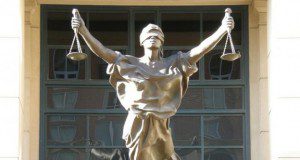The turbulence surrounding Betsy DeVos as President Trump’s pick for Education Secretary included concern over people with disabilities and the poor (Refer here and here for articles on Ms. DeVos’ nomination). One of the major civil rights laws related to education is that states that receive federal aid must provide services to children with disabilities. Ms. DeVos did not appear to be aware of this law, as she said that each state should decide what to do concerning students with disabilities. Also, as someone who has never had experience or exposure to public schools, and as someone who is extremely wealthy, one wonders how sensitive Ms. DeVos will be to children in poverty.
Last week, I was in Washington, D.C. for the National Prayer Breakfast. On Wednesday, the day before the breakfast, I was eating lunch in one of the cafeterias on Capitol Hill. The person sitting across from me was blind, and she was accompanied by her seeing-eye dog. She was there with a group of blind people advocating for rights for the blind, including in matters of education. During our brief conversation, she said that the move in some circles to separate those with disabilities from the rest of society in matters of education is unjust: separate but equal is never equal.
It is easy for me as a middle class white guy who sees with the assistance of contact lenses and glasses to look past the concerns of people like this blind woman, or the poor. Unfortunately, even those of us with formal education and good eye sight have blind spots. Even more unfortunate is when we refuse to acknowledge or simply cannot see that we have blind spots. What I take to be a matter of equity and what people of other points of view take to be equitable can be very different. That is why exposure to people with disabilities and who live in poverty is critically important, especially on matters of education. I recently heard that change on matters of equity is 20% intellectual and 80% experiential. I think this is true. Thus, we need experiential exposure to different people to remove our own blind spots.
The blind woman with whom I spoke sees aspects of life that I do not see. Her disabilities or alternative abilities can educate me to see life from different angles. The same is true of people from different cultural backgrounds and socio-economic strata. We need to make sure that we expose ourselves to diverse publics in education so that we can attend to our various forms of blindness, grow in empathy, and come to a point where we can truly see.
This discussion has a bearing on the larger public discourse politically. It is increasingly very hard for us to see and listen to those with different views. We all have blind spots, whether we are approaching issues from the left or right or somewhere in between. We all need to become better educated. Such education includes sitting down and having conversations with people of opposing views, who can stretch our thinking and broaden our horizons. To do so, we need to ask them questions as to why they think the way they do; it requires walking in their shoes, or as Atticus Finch in To Kill a Mockingbird says, “You never really understand a person until you consider things from his point of view … until you climb into his skin and walk around in it.” So it was for me on Capitol Hill, as a blind woman accompanied by her seeing-eye dog exposed a bit of my own blindness and helped me see a bit more clearly.













